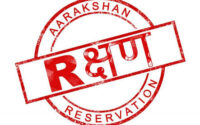The Social Peril of Honour Killing
This article is written by Ritika Sharma from Ansal University and curated by Aaryaki Rana from Chanakya National Law University, Patna.
Honour killing is commonly identified as killing of a family member, most commonly a girl or a woman for bringing shame or dishonour to the family because of the woman eloping or due to engaging in inter- caste marriage, among many. It is also called customary killing which means killing done in order to comply with the custom of culture.
In India, honour killing takes place mainly due to two reasons: if a person marries outside his/ her caste or religion or marries without family’s consent. Although, the cases of honour killing are prevalent all over India but more incidences are common in Punjab, Haryana and Uttar Pradesh. Marital infidelity, pre -marital sex, inter- caste marriage, inter- religious marriage, attempt to obtain divorce, or refusal to enter into an arranged marriage are some of the main reasons of honour killing.
Honour killing has been prevalent since ancient times. In Ramayana, Ravan’s sister Surpnakha secretly married Vidyutjivah- a Danava prince. On marrying a Danava, Ravan became angry with Surpnakha because Danava were mortal enemies of Rakshasas. In order to maintain his respect, Ravan killed Vidyutjivah.
Violation of laws
Indian constitution is the basic and supreme document which lays down the rights and duties of citizens. Honour killing violates some of the provision of the constitution. It violates article 14 (right to equality); article 15(1) & (3) (prohibition of discrimination on the grounds of religion, race, caste, sex or place of birth); article 19 (freedom of speech and expression); article 21 (right to life and personal liberty). Honour killing also opposes some of the national legislations listed below:
- Special marriage act, 1954: this act allows marriages which are performed irrespective of caste or religion. But the practice of honour killing is contradictory to this act.
- Protection of human rights (amendment) act, 2006: this act protects the human rights of every individual. Despite thisact, practise of honour killing takes away the life of people and obstructs their freedom of choice of marriage. Hence, resulting in violation of human
- Domestic violence act, 2005: This act provides women the right to prevent marriage if it amounts to any abuse to women. Here again, honour killing results in infringement of this act.
Why is it still prevalent?
“Honour” has always been linked with the women of the family in India. Men are considered to be the head of the family who monitor the activity of each family member. Every decision has to be taken after consulting the male member of the family, particularly when it comes to women. This shows the patriarchal mindset of modern society. Men are allowed to be out late hours, take up night shifts’ jobs or even hang out with their choice of peers. But women are still forbidden from doing so. The way women dress, marries, everything is related to “honour” of the family. When people will start respecting the choices made by the women, their will, their decision, this practice of honour killing will come to an end. Nirupama Pathak’s case of 2010 is one of the leading case law in honour killing which grabbed the attention of many viewers both in national and international media. She was a 22 year old journalist, who was killed by her family because she was found pregnant and was planning to marry a person outside her caste.
Caste system has turned out to be an unending curse for India. Despite these alarming incidents , people’s views towards the caste system have not changed. In another case, the Nitish Katara murder case, a Sessions court Judge held and ridiculed Neelam Katara, mother of Nitish Katara, whose son was killed by the sons of politician DP Yadav because of his involvement with his daughter, that how can his son’s murder amount to honour killing as in honour killing daughters are killed and also her son was from an upper caste. It is wrong to distinguish the dominant class as good and the oppressed class as bad.
Lack of education and awareness among the people about their rights and the unavailability of punishments for such people is also one of the reasons for the expansion honour killing. To think and believe in a system which still distinguishes between a dominant caste as respectable and the oppressed class as unworthy is a sad reality of our country.
Until now the society has considered honour killing as the only solution to get rid of any problems related to women. Honour killing has a bad impact not only on the family members of victims but also the society at large. The siblings of the victims may be scarred and be afraid of engaging in any act, which ultimately results in obstructing their growth. Families therefore maintain a strict vigilance on their children. Mainly the girl child of the victim family has to suffer. It results in an increased number of suicides cases. It is certain that honour killing has done more harm than good to people. In this 21st century, if the child at the age of 18 years has the right to vote and to elect his representative, this tells us that he/she is psychologically able and competent enough to take the decisions for his/her own life. This act of mercilessly killing is definitely not the solution to this problem. Inter caste marriage, refusal to enter into an arranged marriage etc. does not snatch away one’s right to life. It is a shame that till today there is no definition for honour killing or honour crimes. The only probable and effective solution to this social evil is government intervention through stringent laws to curb the menace of honour killing. But above all , it becomes our duty as a society to educate such orthodox families and support such shunned off individuals, so that they live in this society with peace and dignity.


